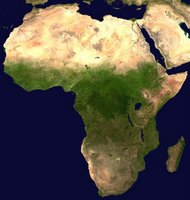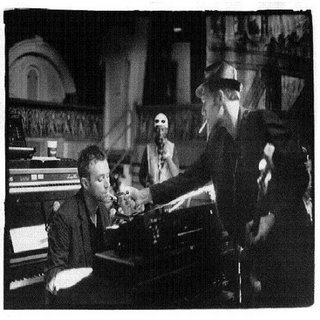Africa

The necessary alternative to ‘world music’ must be ‘non-world’ music. This doesn’t make any sense. ‘Alternative’ music is a misnomer since it is usually mainstream, and as such, not the alternative. Finally, ‘indie’ music is rarely ‘independent’ in the sense that the producer is the owner. Instead, the producer’s work is owned by record labels, which may not even be that small and whose main difference may simply be an inferior capacity to distribute. Ideally, ‘independent’ labels are different by ensuring that artistic integrity is not compromised by corporate goals in the course of the production process. But I think that too often an artificial dichotomy is drawn between ‘indie music’, ‘alternative music’, ‘world music’ etc and this can serve to obscure rather than clarify. In reality, there is a continuum between the ‘mainstream’ and ‘indie’ music. More importantly, what's 'mainstream' in one place is 'indie' in another.
All of the above is a preamble for the following point. Africa, home to a plethora of cultures, styles, traditions, etc possesses a cornucopia of musical talent. Among that talent, Fela Kuti, Tony Allen, Salif Keita, Rokia Traoré, Cecile Kayirebwa, Orchestra Baobab, Cesaria Evora and Mulatu Astatke, among many others, feature prominently. They make ‘world music’. It is very mainstream amongst connoisseurs of ‘world music’ but it is also very ‘indie’ in the sense that the ‘western mainstream’ does not recognize ‘world music’ as much or as often as it should. I hope that this post goes some way towards correcting that deficit.
Labels: Notes and Comments


1 Comments:
nice stuff. world music IS a troubling term, and not at all descriptive or helpful.
Post a Comment
<< Home